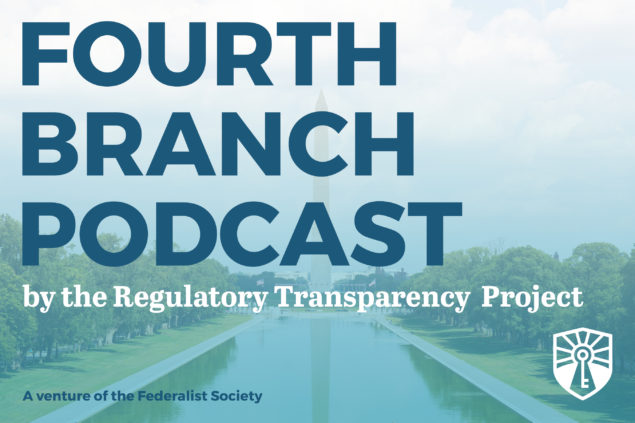William Rinehart
Senior Research Fellow
Center for Growth and Opportunity

William Rinehart
Senior Research Fellow
Center for Growth and Opportunity
William Rinehart is a senior fellow at the American Enterprise Institute (AEI), where he focuses on the political economy of technology and innovation. His research covers policy areas such as diagnostic testing regulation, federal agency regulatory guidance, the CHIPS and Science Act, and the regulation of artificial intelligence.
Before joining AEI, Mr. Rinehart was a senior research fellow at the Center for Growth and Opportunity at Utah State University. He was also the director of technology and innovation policy at the American Action Forum, a research fellow at TechFreedom, and the director of operations at the International Center for Law & Economics. Additionally, Mr. Rinehart worked for the Progress & Freedom Foundation, focusing on advertising policy and internet governance; the Illinois Policy Institute, where he studied state-level budget, energy, and tax issues; and the Institute for Policy and Civic Engagement at the University of Illinois Chicago as a research assistant in technology and civic engagement. Mr. Rinehart was a fellow at the Internet Law & Policy Foundry and a Frédéric Bastiat Fellow at the Mercatus Center. Additionally, he served on the Federal Communications Commission’s Broadband Deployment Advisory Committee and Consumer Advocacy Committee.
He specializes in telecommunication, Internet, and data policy, with a focus on emerging technologies and innovation. His work has appeared in The Wall Street Journal, Bloomberg, Wired, Morning Consult, The Hill, Forbes, Reason, Marginal Revolution, Overlawyered, and on BBC Radio and NPR, just to name a few. Rinehart speaks regularly on topics related to tech policy and has been cited in regulatory orders from the FCC as well as Supreme Court petitions.
Mr. Rinehart has an MS in applied economics from Johns Hopkins University and a BA in political science from the University of Illinois.

A person listed as a contributor has spoken or otherwise participated in Regulatory Transparency Project events, publications, or multimedia presentations. A person's appearance on the website does not imply an endorsement or relationship between the person and the Regulatory Transparency Project. The Regulatory Transparency Project takes no position on particular legal or public policy issues. All expressions of opinion by a contributor are those of the contributor.
Contributions
Why Capitalists in Space Are Good for Americans’ Future
William Rinehart and Adam Thierer
“Discouraging private space exploration would be a step backwards and undo positive reforms that have made space more accessible and affordable.”
Read this articleThe Price of Privacy: A Debate over Corporate Surveillance
Data is being collected on each of us every day by the apps that we use, the websites that we visit, and the services we subscribe to. How is this data used by companies and organizations? What is the difference between data security and data privacy? Where should the balance be struck between privacy and the benefits of increased data collection? This video will discuss these questions and more.
Watch this videoDeep Dive Episode 81 – Vertical Integration in Broadcasting: A Cause for Concern?
What can the United States learn from Canada, a broadcasting market with higher levels of vertical integration and cross-media ownership? Brad Danks and William Rinehart discuss in a conversation moderated by Paul Beaudry.
Listen to this podcastTech Roundup Episode 1 – The Brave New World of Deep Fakes
What are deep fakes, and what are the societal and political implications of their emergence? What challenges do they present to regulators? These and other questions are explored in this episode.
Listen to this podcastThe Flaws in the Latest Proposal to Break Up Big Tech
William Rinehart
Sen. Warren essentially calls for a return to the regulatory structure of “the Gilded Age…” But the era’s efforts to pull apart companies hardly make an exemplary record.
Read this articleAntitrust is Hot Again – A Conversation on Populist, Hipster, and More Antitrust Policy Monikers
William Rinehart
In March, the Pepperdine Law Review cohosted a symposium with the Regulatory Transparency Project on “Regulating Tech: Present Challenges and Possible Solutions”. Babette Bullock, Chief Economist for the FCC, began her panel by observing that antitrust is a hot topic again, appearing under several names such as populist, hipster, or EU style antitrust policy. Will Rinehart started his remarks with an accessible overview of the subject, and we have transcribed his comments to share them with you.
Read this articleDeep Dive Episode 42 – Populist Antitrust
In this panel, the speakers debate varying standards for antitrust rule-making and enforcement. The merits of the Neo-Brandeisian “populist” approach are weighed against more recent “consumer-welfare” standards.
Listen to this podcastPepperdine Law Review’s 2019 Symposium: Populist Antitrust
Today’s regulatory landscape presents challenges for public and private entities. Private actors are often faced with conflicting, ambiguous, or altogether absent regulatory frameworks. Is it possible for them to overcome these challenges while delivering the creativity and innovation the marketplace demands? How can government regulators and legislators avoid stifling opportunity, function more efficiently, and enact and enforce sensible and effective regulatory schemes?
Pepperdine Law Review’s 2019 Symposium, in partnership with the Regulatory Transparency Project, explored these vital questions from both the academic and practical perspectives. The second panel of the symposium focused on the current debate over the future of antitrust enforcement.
Watch this video






